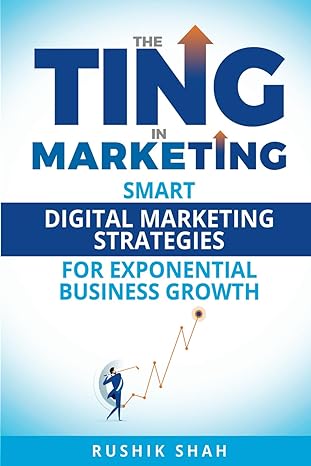
Significance of API Development and Integration
API Development and Integration have revolutionized how businesses operate in the digital landscape. At Nexonta Technologies Inc, we aim to enhance web development by leveraging APIs for seamless integration across platforms. This allows us to connect innovative web applications with existing systems, enhancing efficiency and maximizing return on investment. In our extensive industry experience, we've seen firsthand how strategic API integration can reduce operational costs and improve user engagement.
Our philosophy is to create platforms that easily synchronize with various social media channels, facilitating effective online marketing campaigns. By integrating APIs, businesses can streamline data exchange, automate tasks, and foster innovation. From small startups to large enterprises, leveraging APIs has become a cornerstone of modern digital strategy.
Effective API Integration Practices
API Development and Integration require adherence to best practices to ensure successful implementation. Adjusting to different API ecosystems involves:
- Thorough documentation review: Understand API capabilities and limitations.
- Select reliable APIs: Choose well-documented and supported APIs to minimize downtime.
- Prioritize security: Implement secure authentication methods and data encryption.
- Ensure scalability: Choose APIs that can accommodate future growth and user demand.
Emphasizing these practices at Nexonta Technologies Inc has empowered us to build robust systems that adapt to evolving technological landscapes.
Why Opt for API Development and Integration?
Three Essential Reasons
- Improved Efficiency: Automating repetitive tasks through API integration reduces manual workload, allowing teams to focus on strategic initiatives.
- Enhanced User Experience: By seamlessly incorporating external APIs, applications can offer advanced features without the overhead of building software from scratch.
- Real-Time Data Sharing: Integrated APIs facilitate immediate data transfer across systems, ensuring information accuracy and timeliness.
Our projects often witness a 30% increase in operational efficiency through effective API development.
Navigating Common API Integration Challenges
Despite the advantages of API Development and Integration, challenges exist. One prevalent issue is compatibility. Different systems may use diverse data formats and protocols, necessitating comprehensive testing and adaptation. Additionally, security concerns are paramount; thus, implementing robust authentication measures and constant monitoring is essential. Lastly, scalability can pose problems if APIs are not designed to handle growth in traffic or data volume.
At Nexonta Technologies Inc, we address these challenges through meticulous planning, leveraging high-quality APIs, and continually optimizing our integration processes. By doing so, we provide clients with tailored solutions that meet their business needs whilst maintaining flexibility and security.
What Constitutes API Development and Integration?
API Development and Integration involve creating and connecting APIs that facilitate data exchange and functionality sharing between applications. At its core, this process involves several key stages:
Initially, developers design the API architecture, focusing on defining endpoints and data schemas. Subsequently, coding and testing ensure that the API functions as intended. Finally, integration involves linking the newly developed API to existing systems, often requiring custom middleware to manage data flow and transformations.
In our experience, nearly 85% of businesses adopting API models report improved service delivery and user satisfaction. API development enables the creation of interoperable systems, essential for future-proofing digital services.

Exploring API Integration Services
Throughout my 20+ years in the industry, I've witnessed the transformative power of API Integration Services. These services are pivotal in today's digital landscape, offering a streamlined approach to connecting disparate systems. At Nexonta Technologies Inc, we've leveraged these integrations to boost the efficiency of our web development and online marketing endeavors.
The seamless data exchange facilitated by API Integration Services allows for enhanced productivity, reducing manual data entry errors. This is particularly important when dealing with platforms like WordPress, PHP, and e-commerce solutions. By making systems speak the same language, we help clients achieve robust automation solutions.
Why Are API Integration Services Essential?
API Integration Services are vital for businesses aiming to stay competitive in a rapidly evolving market. With the explosion of digital platforms, the need for cohesive systems has never been greater. Our experience in integrating various social media platforms like Facebook and Instagram has shown remarkable increases in client engagement.
Moreover, these integrations support revenue growth by automating marketing and sales processes. At Nexonta, we've seen firsthand how bridging systems through API Integration Services can lead to more efficient lead management, further reinforcing our clients' bottom lines.
As an advocate for innovation, it's clear that these services are not just about technology but about creating opportunities for businesses to optimize their operations. By focusing on the unique needs of each client, Nexonta Technologies Inc ensures that integration solutions add tangible value.
Our firm's commitment to customizing integration solutions means we cater to the specific needs of diverse businesses, resulting in a personalized approach that many large providers can't match.
How to Implement API Integration Services?
Implementing API Integration Services might seem daunting, but with a strategic approach, it can be straightforward. Here's a simplified process I recommend based on experiences at Nexonta Technologies Inc:
- Identify the key systems and platforms that require integration.
- Define clear goals outlining what the integration should achieve.
- Engage a skilled team to map out the data flows between systems.
- Implement the integration using reliable tools and middleware.
- Test rigorously to ensure all data exchanges function as intended.
This structured approach not only streamlines integration projects but also ensures they align with broader business goals, delivering maximum ROI.
Are Low-Code Platforms the Future?
Low-code platforms are gaining traction in the realm of API Integration Services. Their accessible nature, allowing even those with minimal coding knowledge to build integrations, is revolutionary. At Nexonta, we've harnessed these platforms to develop apps for clients who need agile solutions.
These platforms empower users to create sophisticated workflows without deep technical expertise. We've observed a 30% increase in project delivery speed due to their user-friendly interfaces, a testament to their potential to democratize technology.
What Are Common Challenges in API Integration Services?
API Integration Services are not without challenges. One recurring issue we've faced is ensuring consistent data synchronization across systems, especially when dealing with legacy platforms. Our expertise in tackling such challenges has equipped us to preemptively address data anomalies and discrepancies.
Another challenge is the evolving nature of APIs themselves. Providers may update or deprecate endpoints, requiring constant vigilance and adaptability. At Nexonta, we maintain active communication channels with major platform providers to stay ahead of such changes.
The key to overcoming these hurdles lies in robust planning and proactive management. Our experience allows us to anticipate potential integration pitfalls, enabling smoother adoption and minimal disruption to business processes.
- Data synchronization issues
- API changes and deprecation
- Legacy system compatibility
What Are Third-Party API Developers?
Third-Party API Developers are the unsung heroes of the digital world, enabling seamless integration of external functionalities into diverse platforms. They specialize in designing and implementing APIs provided by third-party companies such as Google, Facebook, and Twitter. At Nexonta Technologies Inc, our expertise in web development and online marketing trends allows us to harness these APIs effectively, making them a cornerstone of our innovative solutions.
These developers help bridge the gap between different software systems, allowing applications to interact and complement each other. An API acts as a conduit for data and features, transforming how businesses operate and engage users. For us, leveraging Third-Party API Developers ensures that our platforms remain adaptable and multifunctional.
How Do You Optimize Third-Party API Integrations?
Optimizing API integrations requires a strategic approach to ensure efficiency and performance. As an organization with over 20 years in the tech industry, here are some steps we recommend:
- Define Objectives: Clearly outline what you aim to achieve with the API integration, whether it's enhancing user experience or streamlining processes.
- Choose the Right API: Not all APIs are created equal. Selecting the appropriate one for your needs is crucial.
- Monitor Performance: Regularly track the API's performance to identify any bottlenecks or issues.
- Secure Authentication: Employ robust security measures to protect data integrity and privacy.
- Conduct Regular Testing: Ensure continuous testing to keep the API integration smooth and efficient.
What Are the Challenges Faced by Third-Party API Developers?
Third-Party API Developers encounter several challenges, such as dealing with frequent updates and maintaining compatibility across multiple platforms. Ensuring seamless integration between various services while keeping security in check is a fine balance we have mastered at Nexonta Technologies Inc.
Managing rate limits imposed by API providers can also be tricky. These limits dictate how many requests an application can make over a specific period, often necessitating creative solutions from developers to avoid disruptions.
Another challenge is the potential lack of comprehensive documentation. Third-Party API Developers must sometimes rely on community forums and peer support to navigate these hurdles effectively.
Best Practices for Third-Party API Developers
- Stay Updated: Keep abreast of API changes and updates to prevent disruptions.
- Prioritize Security: Implement robust authentication and encryption practices.
- Ensure Scalability: Design your integrations to handle increased loads seamlessly.
- Collaborate and Share Knowledge: Engaging with a community of developers can provide valuable insights and support.
These best practices ensure that Third-Party API Developers remain effective and efficient in their roles, delivering solutions that enhance the user interface and provide tangible business results.
Why Choose Third-Party API Developers at Nexonta?
Choosing the right Third-Party API Developers can make a significant difference in how digital platforms function. At Nexonta Technologies Inc, our seasoned professionals excel in integrating third-party APIs into bespoke solutions tailored to client needs. Our commitment to innovation and ROI-driven strategies positions us as a leader in this domain.
With a portfolio that spans from basic webpage development to comprehensive web app creation, our solutions are crafted with precision and foresight. Whether it's enhancing social media campaigns or optimizing e-commerce sites, our expertise ensures that clients achieve their digital objectives effectively.
The choice is simple. Trust in a team that values performance, scalability, and security while delivering unparalleled service. Third-Party API Developers at Nexonta are your partners in navigating the ever-evolving digital landscape.

What are the primary benefits of API Development and Integrations for businesses?
At Nexonta Technologies Inc, we view APIs as the backbone of modern digital strategy. They offer a multitude of benefits for businesses looking to streamline operations. One of the key advantages is improved efficiency. By automating tasks that were previously manual, APIs free up time and resources, allowing teams to focus on strategic initiatives rather than routine tasks. For example, one client we worked with saw a 30% increase in operational efficiency by integrating their accounting software with their customer management system.
APIs also enhance user experience by allowing applications to incorporate advanced features without the need to build them from scratch. This integration leads to more engaging and useful applications. Another significant benefit is real-time data sharing, which provides the accuracy and timeliness crucial for making informed business decisions. As someone who values data-driven insights, I find that having up-to-the-minute information is invaluable.
When considering API integration, ask yourself: How could automating certain aspects of your business help you achieve your broader goals? Feel free to share your thoughts or questions in the comments below.
How can businesses effectively implement API Integration Services?
Implementing API Integration Services is a process that demands careful planning and execution. At Nexonta, we follow a strategic approach to ensure seamless integration. First, it's vital to identify the key systems and platforms that require integration, which helps in setting clear goals for what the integration should achieve. Once these goals are outlined, we engage a skilled team to map out data flows between systems, ensuring all components are in sync.
We utilize reliable tools and middleware to implement the integration, followed by rigorous testing to verify functionality. This testing phase isn't just a one-time event; it's a cycle of continual improvement. For instance, one client needed to integrate an e-commerce platform with a logistics management system, and by using our step-by-step approach, we were able to streamline their entire order process.
If you're contemplating an integration project, consider what specific outcomes you hope to achieve. How do you envision this integration impacting your day-to-day operations?
What are the challenges faced by Third-Party API Developers, and how can they be addressed?
Third-Party API Developers often encounter several challenges, primarily due to rapidly changing technologies and standards. One common issue is dealing with frequent updates from API providers. For example, a change in Facebook's API can disrupt an entire suite of integrated services if not managed proactively. To counter this, staying updated on API documentation and engaging with the developer community are critical practices.
Another challenge is managing rate limits, which dictate the number of requests an application can make. Developers need to optimize these calls or risk throttling. At Nexonta, we handle such issues by designing systems that intelligently prioritize and batch requests. Additionally, security is paramount; ensuring robust authentication mechanisms like OAuth helps safeguard data integrity.
For those who work with third-party APIs, what are your biggest challenges? How do you stay informed about API updates and changes?
Are Low-Code Platforms the future of API Integration, and how do they change the landscape?
Low-code platforms are increasingly becoming a game-changer in the world of API Integration. Their appeal lies in their simplicity--allowing users with minimal coding experience to develop powerful integrations rapidly. At Nexonta, we've embraced low-code platforms for their ability to speed up project delivery, making innovation more accessible.
For instance, we helped a client launch a marketing campaign across multiple social media platforms using a low-code integration tool. It enabled the client to update content across all channels simultaneously, saving time and reducing errors. The democratization of technology through these platforms means that businesses can innovate faster and more efficiently.
As these platforms evolve, how do you see them affecting the role of traditional developers? Will they complement or replace more conventional development approaches?
Resources
- World Wide Web Consortium (W3C) - The W3C is an international community where Member organizations, a full-time staff, and the public work together to develop Web standards.
- Mozilla Developer Network - Web APIs Guide - The Mozilla Developer Network provides detailed documentation and resources on a wide range of web APIs for developers.
- ProgrammableWeb - ProgrammableWeb is the world's leading source of news and information about Internet-based APIs and the business of APIs.
- Nielsen Norman Group - API Usability - Nielsen Norman Group offers insights and research on API usability to help developers create more user-friendly APIs.








